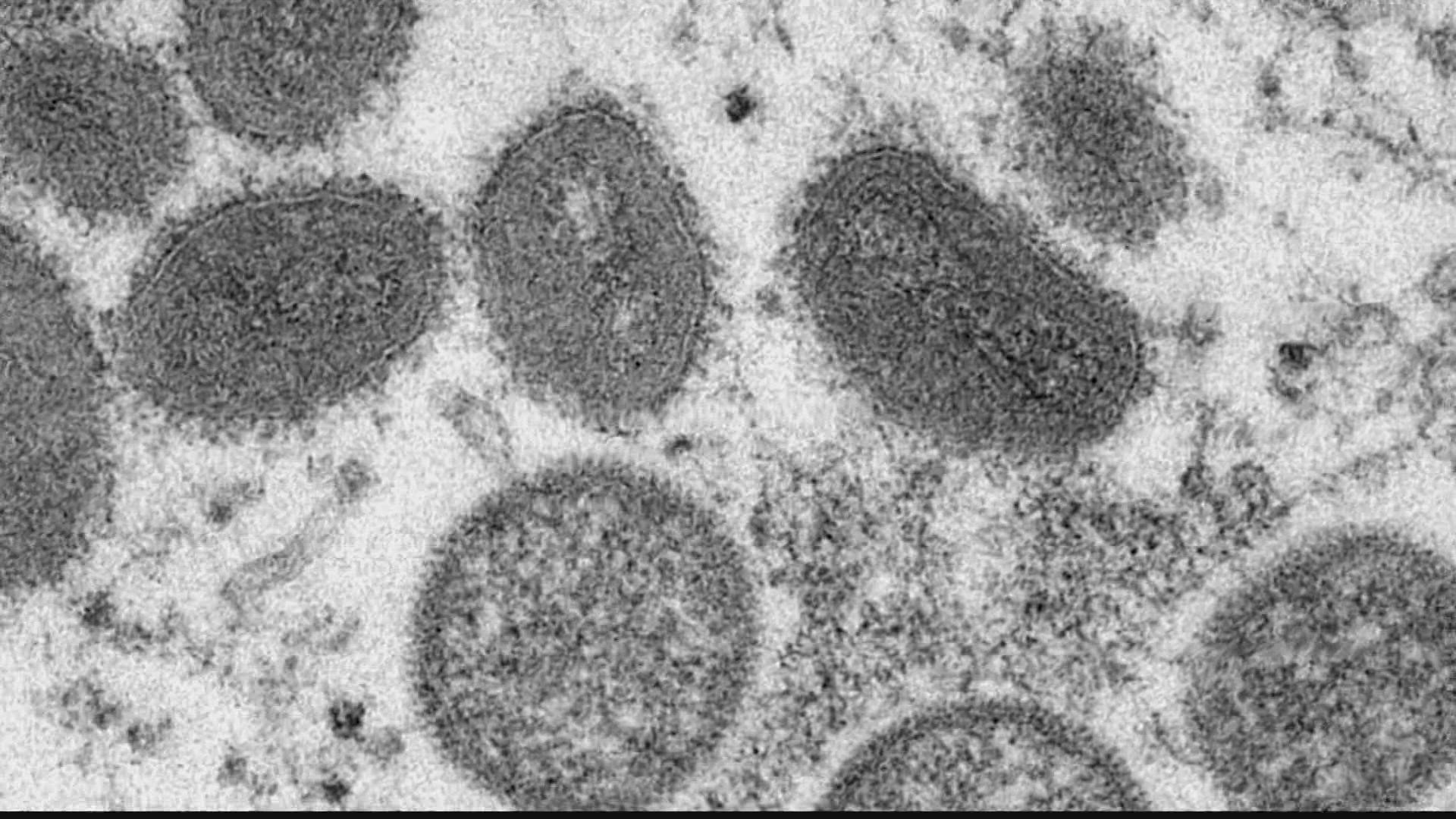ATLANTA — A case of monkeypox has been confirmed in Massachusetts, marking the first U.S. case of the virus, according to the Massachusetts Department of Public Health.
The man with the virus had recently traveled from Canada, officials said.
"The case poses no risk to the public, and the individual is hospitalized and in good condition," health officials said in a news release.
The Centers for Disease Control and Prevention is also monitoring six people who shared a flight with a British traveler who tested positive two weeks ago.
Health officials said the virus is still considered rare and is not nearly as contagious as COVID-19.
11Alive's medical contributor Dr. Sujatha Reddy answered viewers' most pressing questions over the recent outbreak of the rare but potentially serious viral illness.
How is monkeypox transmitted?
Reddy said that monkeypox is not airborne and that the virus can be transferred from an animal to a person as well as person to person.
"It’s a viral illness and it’s not nearly as contagious as the coronavirus so it’s not something that we’re going to see millions of people get infected with," she said.
The virus is usually transmitted through contact with the fluid in blisters or some sort of body fluid or respiratory droplets.
Who is at risk for monkeypox?
According to Reddy, the people most at risk to get monkeypox are those who were exposed to someone who has it, ruling out more people.
"The outbreaks are usually limited and small," she said.
What are the symptoms?
Health officials said one of the main visible symptoms is a blistery rash.
"You’re going to look for things like fever, headache, muscle and body aches," she said. "One thing that makes it different from smallpox is with monkeypox you actually get swollen lymph nodes or swollen glands in the neck or the throat."
The CDC also lists fever, chills and fatigue as known symptoms.
Do people recover from monkeypox?
"People usually recover with no problem if they do get this so I don’t want people to panic. We are not going to be where we were spring of 2020," said Reddy.
According to the World Health Organization, "monkeypox is usually a self-limited disease with the symptoms lasting from 2 to 4 weeks."
WHO said that severe cases happen "more commonly among children and are related to the extent of virus exposure, patient health status and nature of complications."
There is currently no treatment to prevent or cure the virus but some patients are treated with the smallpox vaccine or antivirals according to the CDC.
As of Friday, there are no documented cases in Georgia or neighboring states.

